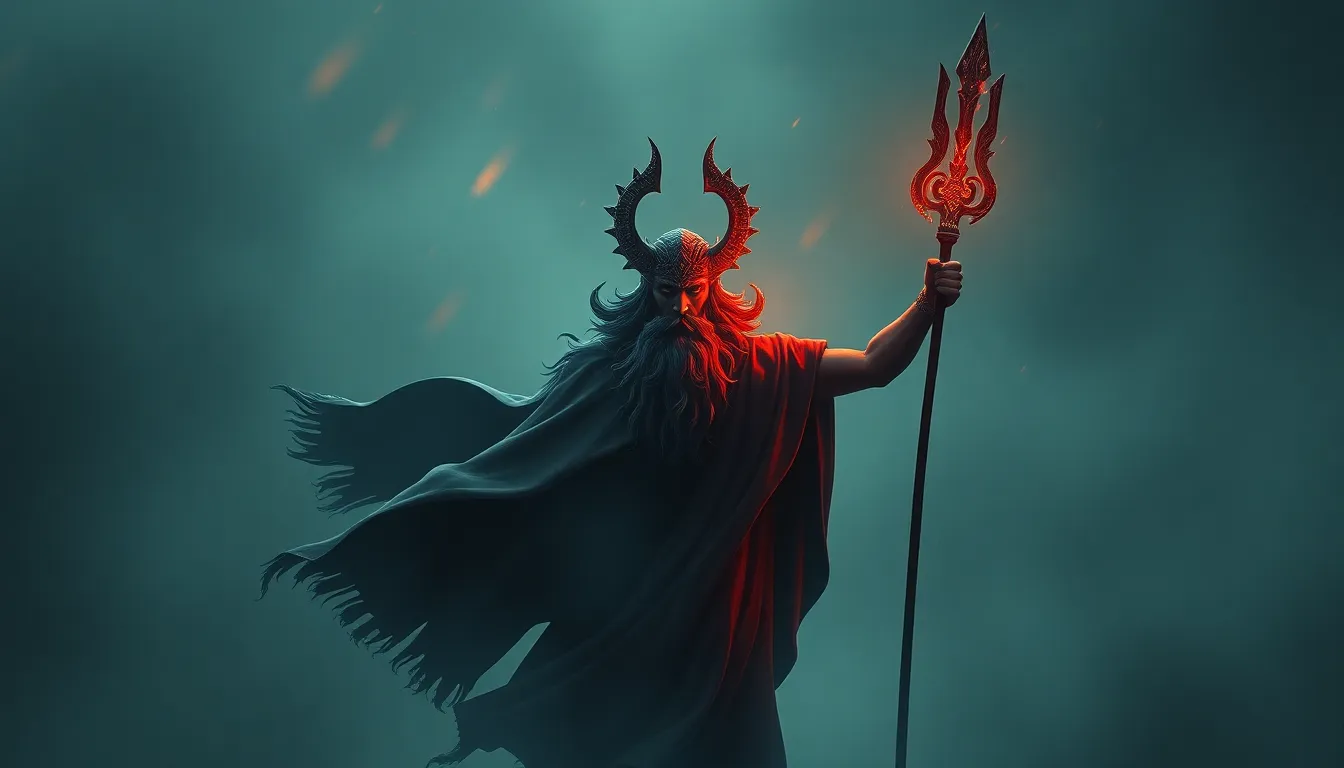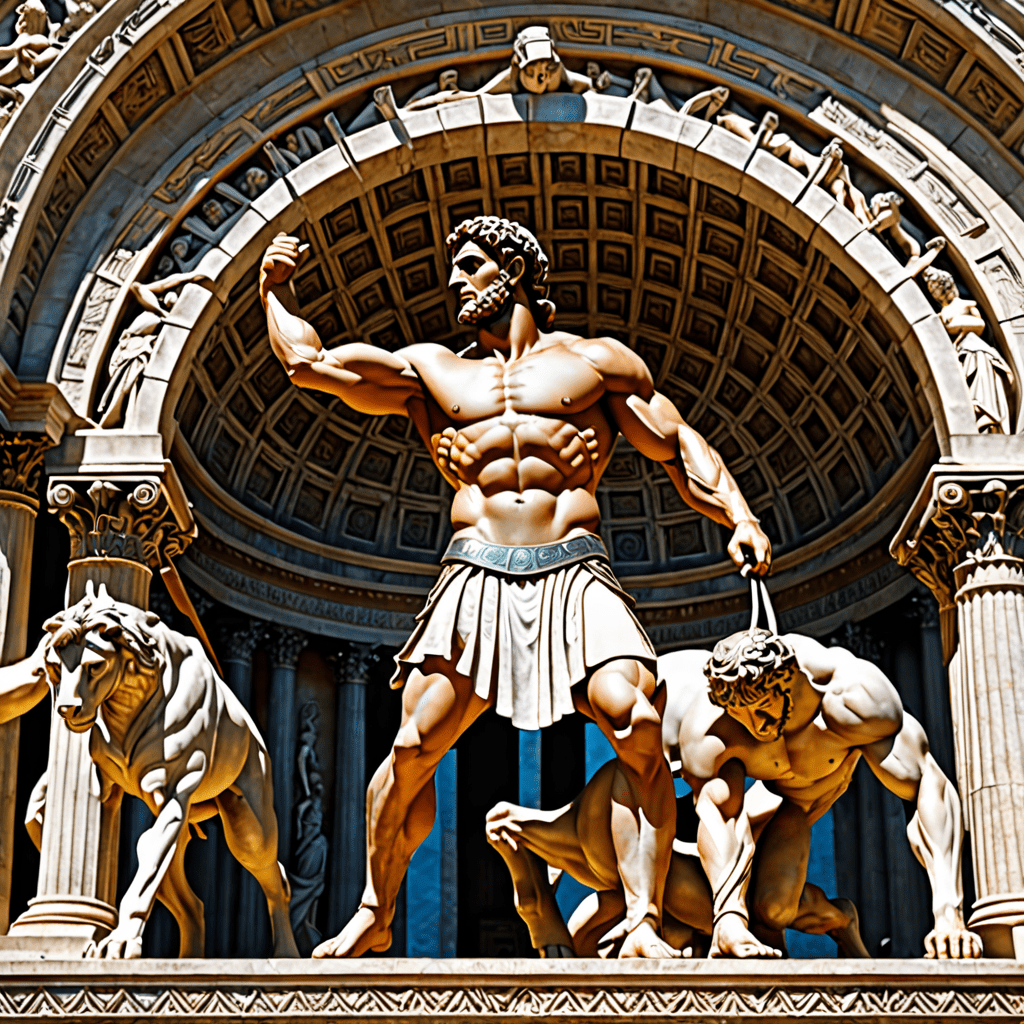Cultural Hero Myths: The Stories That Define Our Values
Introduction to Cultural Hero Myths
Cultural hero myths are foundational narratives that embody the ideals, values, and beliefs of a society. They serve as a means of transmitting cultural knowledge and ethical principles across generations. These stories often feature larger-than-life characters who embark on epic journeys, overcome formidable challenges, and ultimately achieve greatness. The significance of cultural hero myths lies in their ability to shape societal values and beliefs, providing frameworks through which communities understand themselves and their place in the world.
Historical Context of Hero Myths
Hero myths have their roots in ancient civilizations, where they played a crucial role in explaining the world and defining the human experience. The hero narratives of these societies often reflect their social structures, beliefs, and struggles.
Case Studies
- Greek Myths: Figures such as Hercules and Odysseus exemplify the Greek ideals of strength, intelligence, and perseverance. Their stories often involve quests that reflect the values of honor, loyalty, and the pursuit of knowledge.
- Roman Myths: Roman heroes like Aeneas highlight themes of duty and sacrifice, reinforcing the virtues of the Roman Republic and later the Empire.
- Indigenous Narratives: Many Indigenous cultures possess rich traditions of hero myths that emphasize harmony with nature, community, and spiritual connection. These stories often serve to teach moral lessons and preserve cultural identity.
The Anatomy of a Hero Myth
Hero myths often share common characteristics and archetypes that define the hero’s journey. Understanding these elements can provide insights into the cultural significance of these narratives.
Common Characteristics
- Call to Adventure: The hero receives a challenge or quest that sets them on their journey.
- Mentorship: The hero often encounters a mentor who provides guidance and support.
- Trials and Challenges: The hero faces obstacles that test their strength, intelligence, and resolve.
- Transformation: The hero undergoes a transformation, emerging with newfound wisdom or abilities.
- Return: The hero returns to their community, often bringing knowledge or resources that benefit others.
Cultural Variations in Hero Myths
Hero myths vary significantly across cultures, reflecting local customs, values, and historical contexts.
Comparative Analysis
- African Hero Myths: Many African cultures celebrate heroes who embody community values and resilience, such as Anansi the Spider, who teaches important life lessons through cleverness.
- Asian Traditions: In Asian cultures, heroes like Sun Wukong from Chinese mythology often possess magical powers and embody the struggle against oppression.
- European Legends: European heroes, such as King Arthur, often represent ideals of chivalry, honor, and justice.
Additionally, there is a distinction between local heroes, who may be celebrated within a specific community, and global heroes, whose stories have transcended cultural boundaries to inspire people worldwide.
The Role of Hero Myths in Shaping Values
Hero myths play a pivotal role in reflecting and enforcing cultural values. They provide moral frameworks that guide individual behavior and societal norms.
These narratives often emphasize virtues such as:
- Bravery and Courage
- Selflessness and Sacrifice
- Loyalty and Honor
- Wisdom and Knowledge
Through their journeys, heroes embody these values, serving as role models for society. The impact of these stories on moral and ethical frameworks is profound, as they often influence laws, customs, and community expectations.
Modern Interpretations and Reimaginings
In contemporary society, traditional hero myths are often reinterpreted and adapted in literature, film, and other media. These modern adaptations reflect current values and challenges while retaining the core elements of the original narratives.
Examples of Modern Heroes
- Superheroes: Characters like Spider-Man and Wonder Woman embody modern ideals of justice, responsibility, and empowerment.
- Historical Figures: Real-life heroes such as Nelson Mandela and Malala Yousafzai are celebrated for their courage and commitment to social justice.
These modern interpretations serve to resonate with contemporary audiences, allowing for a continuous evolution of hero narratives that reflect current societal values and issues.
Hero Myths and Social Change
Cultural heroes often play a significant role in social movements and revolutions, embodying the aspirations and struggles of their communities.
Case Studies
- Martin Luther King Jr.: His vision of equality and non-violence inspired a generation to fight against racial injustice.
- Malala Yousafzai: A symbol of the fight for girls’ education and women’s rights, her story exemplifies courage in the face of oppression.
These figures not only inspire change but also motivate individuals to participate actively in the betterment of society, illustrating the transformative power of hero myths in real-world contexts.
Critiques of Hero Myths
While hero myths can inspire and unify, they also possess problematic aspects. The idealization of heroes can lead to unrealistic expectations and the exclusion of diverse narratives.
Additionally, the emergence of anti-heroes—characters that defy traditional heroic characteristics—has sparked discussions about the complexity of morality and the nature of heroism.
This evolution of hero narratives allows for a broader understanding of heroism, highlighting the importance of flawed characters who reflect the complexities of human experience.
The Future of Cultural Hero Myths
As society continues to evolve, so too will cultural hero myths. In a globalized world, the blending of narratives and values is likely to give rise to new heroes that reflect a diverse range of experiences.
The influence of technology and digital storytelling will also play a pivotal role in shaping future hero narratives, allowing for more inclusive and varied representations of heroism.
Conclusion: The Enduring Legacy of Hero Myths
Cultural hero myths remain a vital aspect of understanding cultural identity and societal values. They serve not only as inspirational stories but also as reflections of our collective aspirations and challenges.
As we navigate an increasingly complex world, it is essential to embrace a diverse range of hero narratives that can enrich our understanding of what it means to be a hero. By doing so, we can foster a culture that values inclusivity, empathy, and resilience.



